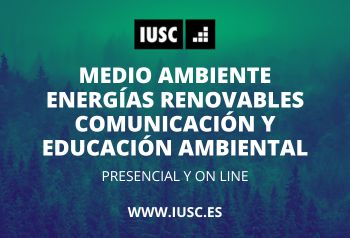A third of employees consider that, when choosing a company to work for, its environmental reputation is an important factor to assess, given that currently the awareness about the deterioration of the environment is greater and worries the promising workers.
On October 21st, the World Energy Saving Day. This date aims to raise awareness among the population about the importance of improving consumption habits, reducing electricity consumption and opting for more environmentally friendly energy sources. environment.
Work without harming the environment
In addition to housing, one of the great sources of energy consumption in our country are offices and workplaces. The constant lighting, the intensive use of electronic devices or the need to keep the workspace air-conditioned cause spending on this type of location to reach high levels.
In this sense, as calculated by the energy consultancy Fuxiona, a medium-sized office (around 100m2) consumes about 3,500 kWh per month and 42,000 per year. This figure of consumption generates more than 7 tons of CO2 and around 320 trees would need to be planted and allowed to grow for 10 years to compensate for this problem.
This issue has become one of the biggest concerns for workers. In fact, the report “A People-First Green Business Transformation”, prepared by ManpowerGroup, points out that the 62% of workers investigate environmental reputation of an organization and one in three say that this factor influences their decision to accept or reject a job offer. Additionally, according to a recent Deloitte study, more than half (54%) of Gen Z employees pressure their companies to address the climate change.


This awareness about energy savings has led a large number of companies in our country to opt for flexible offices. During 2024, sustainability has been one of the pillars in this type of spaces. Eco-friendly designs, recycled materials, optimization of natural light or efficient ventilation systems are some of the trends used in this sector.
David Vega, CEO of Lexington, a pioneer company in the flexible office sector and specialized in coworking for companies in Madrid and Barcelona, explains that “sustainability has become a crucial issue in the current corporate environment, and the flexible offices lead this transformation. At Lexington we understand that sustainability is one of the current pillars when it comes to the work ecosystem.”
Lexington experts ensure that eco-friendly designs, the implementation of smart technologies for energy managementthe use of interior green areas and the inclusion of stations that allow correct waste management will continue to be rising trends in the design of the offices of the future.
Since a medium-sized office is capable of generating 7 tons of CO2 annually, employees are informed about the environmental reputation of their future workplaces. In fact, if these are flexible, they are considered more effective solutions when it comes to reduce energy consumption at work level. And that influences their preferences when it comes to accepting or not accepting a position.

